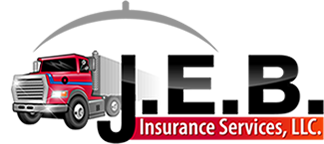As the name suggests, a wheel-off occurs when a wheel and its tire come off the tractor or trailer of your commercial or owner operator truck. Wheel-offs are very dangerous because these out of control 200 pound wheels, rolling at highway speeds, can hit cars or pedestrians.
Sometimes these wheels bounce over highway dividers and into the opposite lane. In this case, the combined speed of impact can be twice that of the highway speed limit such as 130 mph (65 mph x 2). A common reason for wheel-offs is improper wheel installation and there are many ways that mistakes can happen. Here are six of them:
The Wheels Aren’t Installed in a Star Pattern
The star pattern of nut tightening consists of tightening successive pairs of diagonally opposite nuts. The exact ordering depends on the number of studs.
The Nuts Are over Tightened
Correctly tightened nuts stretch the studs by a small amount. They return to their original length after loosening the nut. Over tightening a nut stretches the stud too far and generates stresses close to the breaking point. The additional stresses of highway travel can be enough to cause several over stressed studs to break, which can cause a wheel-off.
The Nuts Are under Tightened
When this happens, there is insufficient clamping force holding the wheel to the hub or drum. This can cause the nuts to loosen up.
The Nuts Aren’t Installed to the Proper Torque
This results in either an over or under tightened nut. This happens when torque wrenches aren’t used or are improperly used. Alternatively, pneumatic nut runners set to the proper air pressure using an air regulator can also provide the proper torque. These shouldn’t be confused with ordinary air powered impact wrenches.
The Nuts and/or Studs Are Rusty, Dirty, or Have Other Contaminants
Rust, dirt, grit, paint flecks, and other contaminants on the nut or stud threads means it’s impossible to know whether you have the correct clamping force holding the wheel to the hub. The reason is that it takes extra torque to overcome the rust or other contaminants in the thread.
Because you don’t know what this extra torque is, you don’t know how much torque is needed to properly clamp the wheel down. If you apply the standard torque using a torque wrench, the wheel will have insufficient clamping force with the hub because much of the torque is used up in overcoming the rust. This again risks a wheel-off accident. Use a wire brush to clean the threads.
The Wrong Lubricant Is Used
Use a 30-weight oil when assembling a hub-piloted wheel. Other oil types will give you the wrong clamping force. Don’t use any oil on a stud-piloted wheel. They are torqued dry.
If you require commercial or owner operator truck insurance in North Carolina, we at J.E.B. Insurance Services are happy to evaluate your insurance needs. Contact us today for more information.


